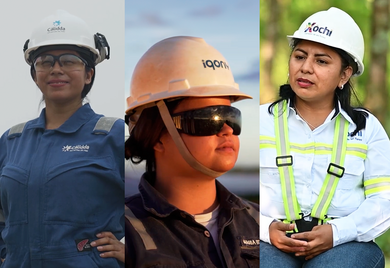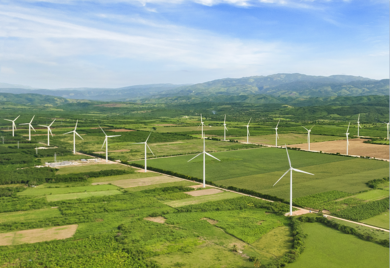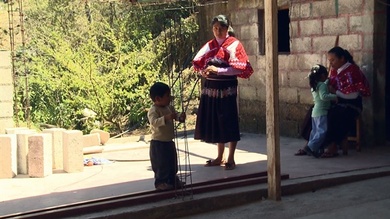Blogs Navigation
Sustainable BusinessRecent posts

Financial Health: Driving Growth in Latin America and the Caribbean
According to the latest Global Findex database, the proportion of adults in Latin America and the Caribbean (LAC) with account ownership rose from 39% in 2011 to over 75% in 2025. This increase was driven by the rise of digital-first financial service providers, expanded government transfers, and innovations that enhance the value proposition, such as the growth of e-commerce and instant payment systems in countries like Brazil, Peru, and Costa Rica.

IDB Invest and the New Push for the Private Sector in Paraguay
Imagine investing in a portfolio of projects in a country with sustained economic growth, low inflation, abundant clean energy, and preferential access to a regional market of 270 million consumers. That country is Paraguay, where IDB Invest has committed to mobilizing up to $1 billion to support strategic private-sector projects that drive sustainable development.

Energy and Transport Infrastructure: Projects Driving Jobs and Transforming Communities
IDB Invest works to boost job creation through the private sector and ensure these opportunities reach areas with the potential to develop new productive sectors and generate formal employment. Financing energy and transport infrastructure projects in Latin America and the Caribbean has been crucial for creating quality jobs and increasing women's workforce participation.

Three trends to impact business in 2017
The year 2016 marked a time of new beginnings, rapid changes and uncertainty. This is especially true in Latin America and the Caribbean’s private sector. Looking back, we see three trends that impacted the year and will define what is to come.

The best of 2015: Quinoa a super-food and super-solution to food security
Two years ago, the Food and Agriculture Organization (FAO) declared 2013 theInternational Year of Quinoa. Before then, it was scarcely found outside of colorful Andean marketplaces except at boutique shops in the U.S. and Europe. Now, many international food companies are embracing quinoa and exporting this super-food from Andean countries like Bolivia, Peru and Ecuador.

Infrastructure 360º Awards: promoting best practices in sustainable infrastructure
* By Ana María Vidaurre-Roche A sustainable approach to project design has allowed a metro line in Peru to reduce greenhouse gas emissions up to 80% above what regulations require. The line connects 11 districts across Lima and improves access and mobility, increasing the city’s productivity level by reducing commuting times by almost four times. The project has created meaningful actions that go beyond its immediate business: engaging community groups in cultural and reforestation programs to enhance public space, and helping address other visible problems such as social insecurity, youth unemployment, traffic chaos, and pollution. In the Dominican Republic, a wind farm project driven by a sustainable strategy provided an agrarian, low-income region with power and brought added value to the communities through educational and social programs, rehabilitation of community assets, and support of local businesses.

What good is capital without customers? Financial inclusion is necessary for healthy societies
*By: Tomas Miller The financial inclusion strategies that several countries in Latin America and the Caribbean are adopting and incorporating into their national development policies aim at increasing access to and use of financial services for segments of the population that have been excluded or underserved by financial systems. These policies assume that achieving a higher level of financial inclusion is a necessary condition for increasing the social inclusion of these excluded people. What good is having a solvent and liquid financial system if it serves only businesses and powerful families? What good is capital without customers?

How To Export In 7 Steps
*By: Antonello Bove Many a business reaches the point where it outgrows its market. The company has a solid, sought-after product, but finds that it will not be able to sell much more in its current market, be it because it already supplies the whole market or because stiff competition means it has to look elsewhere to continue growing.

From toll roads to ‘smart’ mobility projects: the evolution of PPPs
* By:David Bloomgarden Public-private partnerships (PPPs) to build and maintain infrastructure are no longer just for big economies in traditional sectors, involving projects such as toll roads and ports. Small economies and regional and local government are realizing the potential of engaging the private sector in infrastructure projects.


